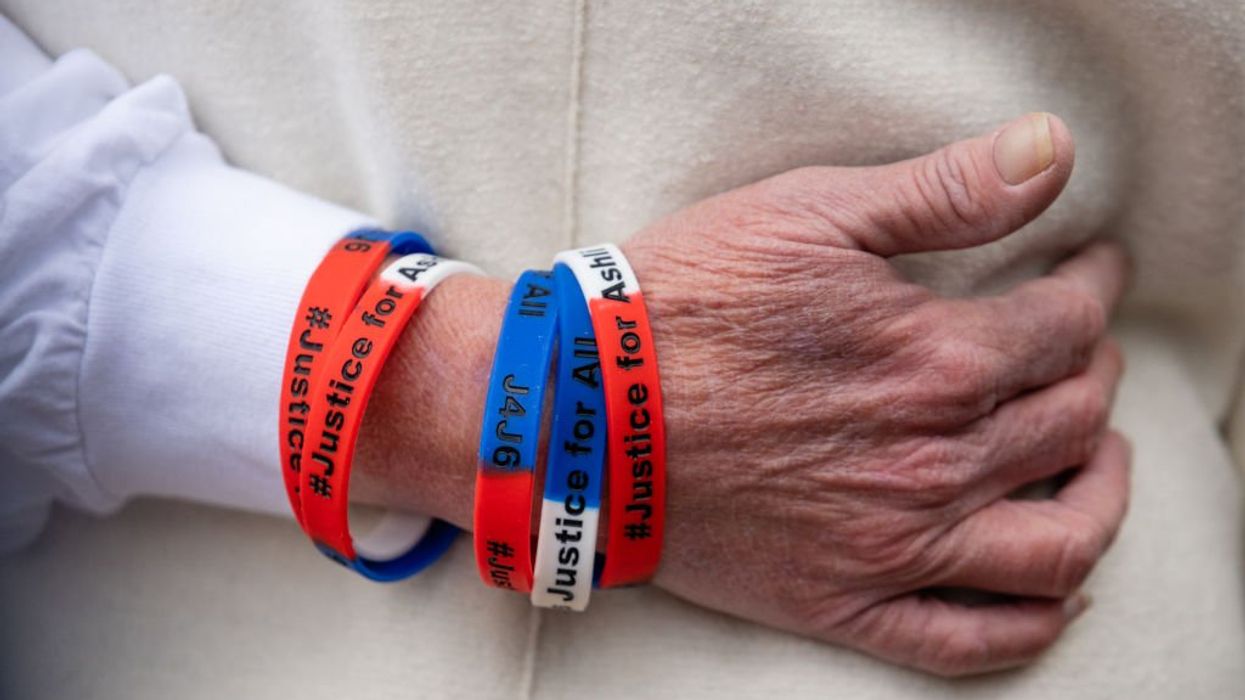While the Department of Veterans Affairs is just starting to climb out of the crisis related to veterans' wait time for healthcare, the Obama administration is pushing the VA take on a new task — ensuring it delivers benefits to all same-sex couples.
In the United States vs. Windsor case in 2013, the Supreme Court struck down the Defense of Marriage Act. Since then, most federal agencies have worked to ensure their policies recognize legal marriages between same-sex couples.
 The Carl T. Hayden VA Medical Center in Phoenix was the epicenter of the VA healthcare crisis, which the VA is still trying to solve. At the same time, the Obama administration is pushing the VA to provide benefits to same-sex couples. (AP Photo/The Arizona Republic, Michael Chow)
The Carl T. Hayden VA Medical Center in Phoenix was the epicenter of the VA healthcare crisis, which the VA is still trying to solve. At the same time, the Obama administration is pushing the VA to provide benefits to same-sex couples. (AP Photo/The Arizona Republic, Michael Chow)
In the last several months, most agencies have also decided to recognize a same-sex marriage as legal even if the couple lives in a state that does not recognize gay marriage.
On Monday, for example, the Office of Personnel Management published a proposed rule that would let all same-sex couples use the Family and Medical Leave Act to attend to sick family members without fear of losing their job. OPM's rule will apply to all federal employees who are in legal same-sex marriages, even if they now live in a state where those marriages are not recognized.
The Department of Labor announced last week that it would soon follow with a similar rule that applies to all non-federal workers.
But according to a memo released last week by Attorney General Eric Holder, two federal agencies are still required by law to provide marriage benefits to same-sex couples only when they live in states that recognize gay marriage. Those agencies are the Social Security Administration, and the VA.
Holder said the Obama administration should push Congress to pass legislation that would allow SSA and the VA to expand benefits to all same-sex couples. One of these bills is the Respect for Marriage Act, from Sen. Dianne Feinstein (D-Calif.), who welcomed Holder's recommendation to pass her bill into law.
"I welcome the Justice Department's call for passage of our legislation to finally repeal DOMA once and for all and ensure that legally-married, same-sex couples are treated equally under federal law, regardless of where they live," Feinstein said last week.
Holder also recommended a bill from Sens. Mark Udall (D-Colo.) and Patty Murray (D-Wash.) aimed at giving the SSA flexibility to provide marriage-related benefits to same-sex couples no matter where they reside.
The push for new legislation by the Obama administration raises questions about how easily it can be passed in the House and Senate. House Republicans in particular pushed to defend DOMA in court, and many may resist legislation that effectively says same-sex couples living in states that don't recognize same-sex marriage can still get Social Security and VA benefits like other couples.
Democrats, however, are likely to counter that the issue at hand is the availability of federal benefits, not state benefits for same-sex couples.
In the meantime, the VA has said it is working as aggressively as it can to ensure equal treatment for same-sex couples, within the bounds of current law.
For example, Acting VA Secretary Sloan Gibson has said he would use his own discretion on the issue of whether same-sex spouses of veterans should get certain burial rights. According to Holder, Gibson will examine if there is evidence of a "committed relationship" between a veteran and his or her spouse, and if there is, may permit burial of those spouses in national cemeteries.
So far, Senate Democrats have not indicated whether or when they will consider Feinstein's bill or any other related legislation.

 The Carl T. Hayden VA Medical Center in Phoenix was the epicenter of the VA healthcare crisis, which the VA is still trying to solve. At the same time, the Obama administration is pushing the VA to provide benefits to same-sex couples. (AP Photo/The Arizona Republic, Michael Chow)
The Carl T. Hayden VA Medical Center in Phoenix was the epicenter of the VA healthcare crisis, which the VA is still trying to solve. At the same time, the Obama administration is pushing the VA to provide benefits to same-sex couples. (AP Photo/The Arizona Republic, Michael Chow)


